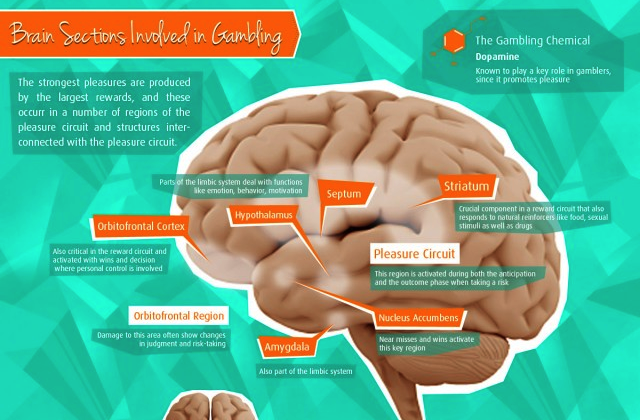The psychology of gambling reveals a complex interplay between emotion and decision-making, influencing millions worldwide. From casual players to those entrenched in gambling addiction, the motivations and psychological states can vary dramatically. Emotional swings in gambling frequently lead individuals to experience the devastating effects of tilt in poker, where frustration and overconfidence drive irrational behavior. Understanding these dynamics is crucial for developing effective strategies for support for problem gamblers, as cognitive distortions gambling can perpetuate a cycle of loss and despair. By exploring the underlying psychological factors at play, we can foster a deeper understanding of how to address the challenges faced by those affected by gambling.
Delving into the intricacies of gaming behaviors, the mental dynamics of wagering showcase the emotional turbulence many experience. Individuals caught in gambling often grapple with intense highs and lows, leading to a range of issues such as compulsive betting and gambling addiction. The phenomenon known as emotional volatility not only amplifies psychological distortions but also highlights the vital need for cognitive reframing strategies in managing such behaviors. It is paramount to create a support system that acknowledges these emotional struggles while empowering affected individuals with effective coping mechanisms. By understanding these crucial psychological elements, we can enhance awareness and foster more supportive environments for those navigating the complexities of gambling.
Understanding the Emotional Swings in Gambling: The Impact of Tilt
The emotional landscape of gambling is often marked by intense fluctuations that can significantly impact a gambler’s decision-making. One pivotal concept within this realm is ’tilt,’ a state where players, influenced by emotions like frustration or elation, make poor judgments that can lead to disastrous outcomes. For instance, when faced with losses, a gambler might chase those losses in an attempt to recover, ignoring rational assessments in favor of knee-jerk reactions spurred by heightened emotional states. This behavior not only amplifies financial risks but also perpetuates a cycle of emotional distress that can mirror the psychological traits observed in gambling addiction.
These emotional swings—oscillating from excitement to despair—can also lead to cognitive distortions, where gamblers erroneously believe they can predict outcomes or regain previous losses. This belief fuels a dangerous illusion of control, misleading gamblers into thinking they’re on the cusp of a lucky break. Understanding and recognizing these emotional patterns is vital for both players and those supporting problem gamblers, as it paves the way for effective interventions aimed at mitigating such destructive behaviors.
Support Strategies for Problem Gamblers: Addressing Needs with Psychological Insight
To effectively aid individuals struggling with gambling addiction, a multifaceted approach that integrates psychological support and educational resources is essential. Various methods, such as cognitive-behavioral therapy (CBT), target the cognitive distortions that often trap gamblers in a cycle of negative behaviors. By helping individuals recognize their emotional triggers and irrational beliefs around gambling, therapists can equip them with healthier coping mechanisms and decision-making strategies. This proactive engagement not only addresses the gambling behavior but also the underlying emotional and psychological factors contributing to the addiction.
Moreover, access to support networks—be it local support groups or online communities—can significantly enhance recovery efforts. These platforms allow individuals to share their experiences and strategies, fostering a sense of belonging and reducing feelings of isolation often associated with gambling. The importance of ongoing education cannot be overstated; by raising awareness about the psychological aspects of gambling and available resources, we can encourage individuals to seek help sooner rather than later. Merging these insights with empathetic outreach lays the groundwork for an environment where individuals feel supported in their journey towards recovery from gambling addiction.
Frequently Asked Questions
What are the emotional swings associated with gambling and how do they affect players?
Emotional swings in gambling are significant psychological phenomena that can lead to irrational decisions and increased risk-taking. For example, the state known as ’tilt’ occurs when gamblers become emotionally distracted, often making poor betting choices in response to losses. This emotional turmoil, fueled by anxiety or frustration, can spiral into further financial losses and exacerbate underlying issues like depression. Understanding these emotional swings is crucial for addressing gambling addiction and promoting healthier behaviors.
How can cognitive distortions contribute to gambling addiction?
Cognitive distortions play a vital role in the psychology of gambling, leading individuals to develop false beliefs that can perpetuate gambling addiction. Concepts such as the illusion of control and gambler’s fallacy cause players to mistakenly believe they can influence outcomes or predict wins, even after repeated losses. This misunderstanding traps many gamblers in a cycle of compulsion, promoting continued gambling despite negative consequences. Awareness of these cognitive distortions is essential in providing effective support for problem gamblers.
| Key Psychological Factors | Impact on Gambling Behavior | Intervention Strategies |
|---|---|---|
| Emotional swings, particularly ’tilt’ | Increased risk-taking and irrational decisions | Cognitive-behavioral therapy (CBT) to address thought patterns |
| Cognitive distortions (illusion of control, gambler’s fallacy) | Chasing losses and continued gambling despite negative outcomes | Awareness and education about unhealthy behaviors |
| Stress and emotional coping mechanisms | Using gambling as an escape from real-life problems | Support groups and resources for community engagement |
Summary
The psychology of gambling reveals a complex interplay of emotional and cognitive factors that drive individuals towards gambling behaviors. Understanding these elements is essential to addressing the issues surrounding gambling addiction and supporting affected individuals. Emotional swings, such as experiencing ’tilt,’ highlight how gambling can lead to irrational choices and escalating risks associated with losses. Moreover, cognitive distortions can entrap gamblers in a cycle of betting despite contrary outcomes. Through effective interventions like CBT and community support, we can provide individuals with tools to change their gambling behaviors. Ultimately, the journey to comprehend the psychology of gambling is not just about understanding the risks, but it is a step towards fostering better mental health and encouraging responsible gambling practices.
